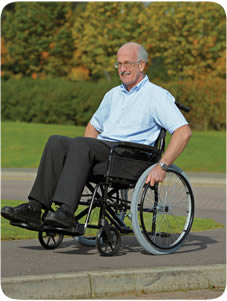If the person you care for has mobility problems or uses a wheelchair this can make even short journeys difficult. The longer the journey and the less able the person is, means more planning before taking longer trips.
Planning ahead – before your journey
- Access to your method of transport. Car, bus, coach, rail, boat or air. Can you be sure what facilities are available at each stage?
- Assistance available. Will there be someone to help you?
- Do you need to book in advance?
- Are there accessible toilets? Check Disability Right UK
- Can you travel at quieter time off peak?
- Allow extra time on your journey especially if changes are needed, for example when changing trains or in an airport.
- Think about taking extra supplies of your medication, drinks and food in case of any unforeseen delays.
- Do you have travel insurance for a complex journey? (See the CHSS Travel and Motor Insurance)
